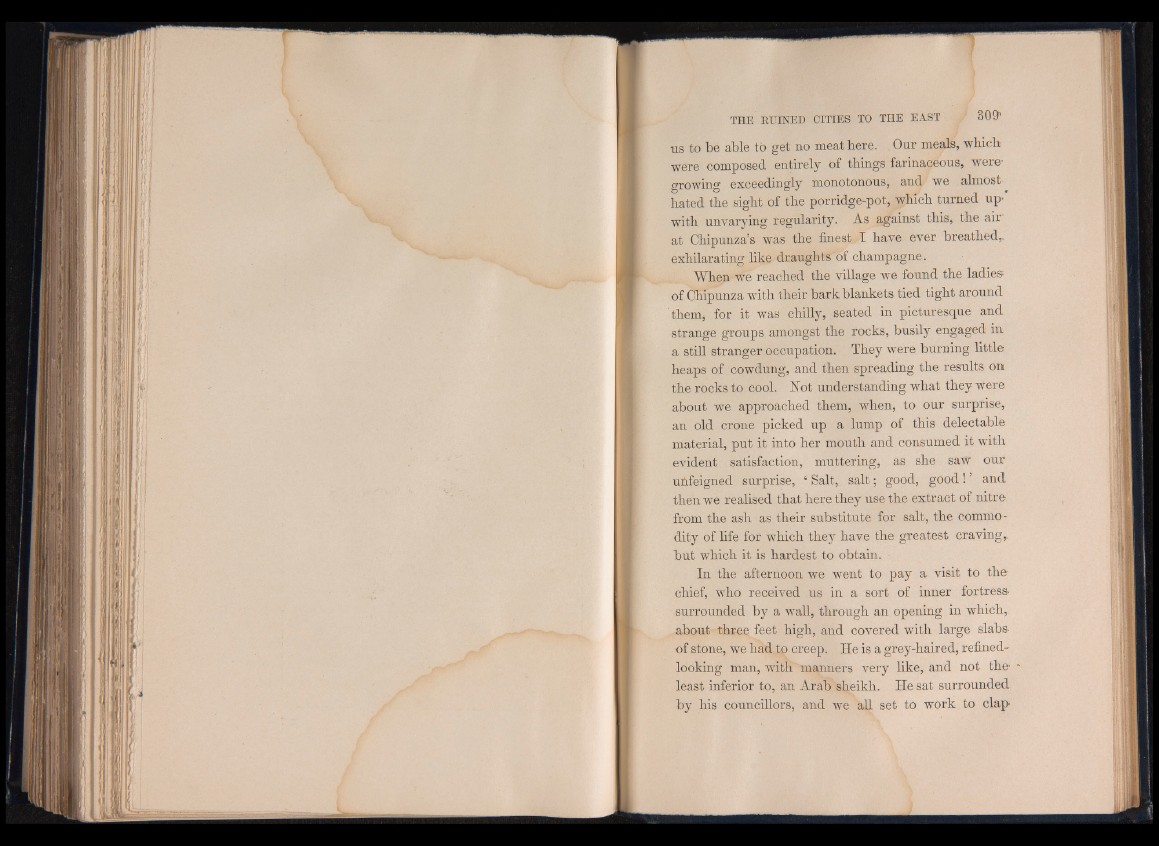
us to be able to get no meat here. Our meals, which
were composed entirely of things farinaceous, were-
growing exceedingly monotonous, and we almost
hated the sight of the porridge-pot, which turned up-*
with unvarying regularity. As against this, the air
at Chipunza’s was the finest I have ever breathed,,
exhilarating like draughts of champagne.
When we reached the village we found the ladies
of Chipunza with their bark blankets tied tight around
them, for it was chilly, seated in picturesque and
strange groups amongst the rocks, busily engaged in
a still stranger occupation. ‘ They were burning little
heaps of cowdung, and then spreading the results on
the rocks to cool. Not understanding what they were
about we approached them, when, to our surprise,
an old crone picked up a lump of this delectable
material, put it into her mouth and consumed it with
evident satisfaction, muttering, as she saw our
ufifeigned surprise, ‘ Salt, salt; good, good!’ and
then we realised that here they use the extract of nitre
from the ash as their substitute for salt, the Commodity
of life for which they have the greatest craving,,
but which it is hardest to obtain.
In the afternoon we went to pay a visit to the
chief, who received us in a sort of inner fortress-
surrounded by a wall, through an opening in which,
about three feet high, and covered with large slabs-
of stone, we had to creep. He is a grey-haired, refined-
looking man, with manners very like, and not the ~
least inferior to, an Arab sheikh. He sat surrounded
by his councillors, and we all set to work to clap